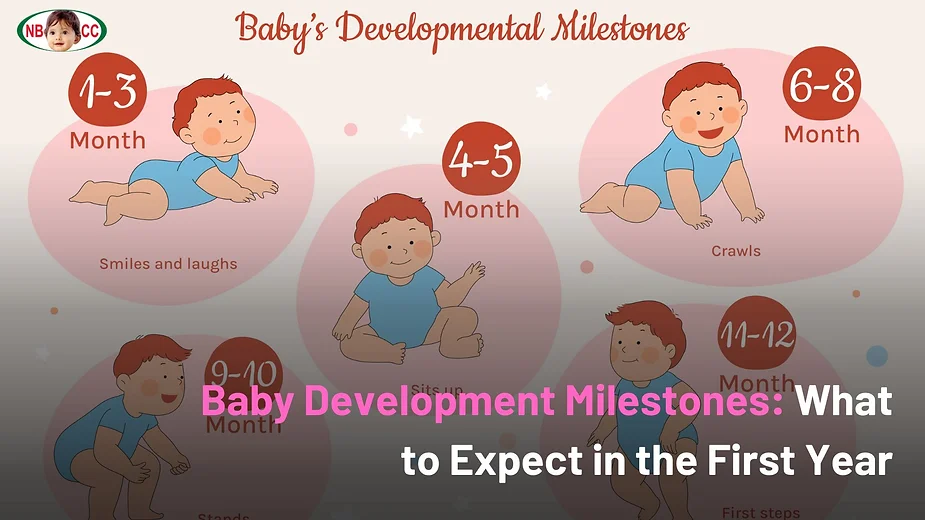Tips for new parents 2025
Essential Tips for New Parents: Your Complete Guide to Baby Care and Parenting Success in 2024

Becoming a new parent is one of life's most incredible yet overwhelming experiences. From the moment your little one arrives, you're thrust into a world of sleepless nights, endless questions, and pure, unconditional love. Whether you're expecting your first child or have recently welcomed your baby, navigating the early stages of parenthood can feel like learning a completely new language.
This comprehensive guide provides essential tips for new parents, covering everything from basic baby care to managing your own well-being during this transformative time. Based on the latest research and expert recommendations from pediatricians, sleep specialists, and experienced parents, these insights will help you build confidence and create a nurturing environment for your growing family.
Understanding Your New Role as a Parent
Parenthood doesn't come with a manual, and that's perfectly normal. Every baby is unique, and what works for one family may not work for another. The key to successful parenting lies in understanding that flexibility, patience, and self-compassion are your greatest tools.
Defining Modern Parenthood
Today's parents face unique challenges and opportunities compared to previous generations. With access to vast amounts of information online, it's easy to feel overwhelmed by conflicting advice. Modern parenthood is about finding balance between staying informed and trusting your instincts.
Research from the CDC emphasizes the importance of positive parenting practices, which include spending quality time with your baby, responding to their cues, and creating a secure, loving environment. These fundamental principles remain constant regardless of the latest trends or parenting philosophies.
Essential Baby Care Fundamentals

Feeding Your Newborn
Whether you choose to breastfeed, bottle-feed, or combine both methods, establishing a feeding routine is crucial for your baby's health and your peace of mind. Newborns typically need to eat every 2-3 hours, including during the night.
- Breastfeeding tips: Ensure proper latch, feed on demand, and stay hydrated
- Bottle feeding guidelines: Use proper formula preparation techniques and maintain sterile equipment
- Track feeding patterns: Use apps like Huckleberry to monitor feeding times and amounts
- Watch for hunger cues: Rooting, sucking motions, and fussiness often indicate hunger
:max_bytes(150000):strip_icc()/GettyImages-911118678-2000-020b45c136914100bdafa8749d5ecbff.jpg)
Safe Sleep Practices
Creating a safe sleep environment is one of the most important aspects of newborn care. The American Academy of Pediatrics recommends the ABCs of safe sleep: Alone, on their Back, in a Crib.
- Sleep position: Always place babies on their backs to sleep
- Sleep environment: Use a firm mattress with a fitted sheet
- Room sharing: Keep baby's sleep area in your room for the first 6 months
- Avoid hazards: No blankets, pillows, or toys in the crib
Diaper Changing Mastery
Diaper changes are a constant in the early months, with newborns requiring 8-12 changes per day. Having a well-organized changing station and following proper hygiene practices makes this task more manageable.

- Preparation is key: Have all supplies within reach before starting
- Safety first: Never leave baby unattended on the changing table
- Hygiene matters: Wash hands before and after each change
- Comfort your baby: Talk, sing, or use toys to keep them calm
Bath Time Safety and Routine
Newborns don't need daily baths, but when you do bathe them, safety should be your top priority. Until the umbilical cord heals, stick to sponge baths.

- Water temperature: Keep bath water between 98-100°F (37-38°C)
- Support system: Always support baby's head and neck
- Minimal water: Use only 2-3 inches of water
- Never leave alone: Stay with your baby throughout the entire bath
Managing Sleep Deprivation: Solutions for Exhausted Parents
Sleep deprivation is perhaps the biggest challenge new parents face. Understanding that this is temporary and implementing strategic approaches can help you cope better during this demanding period.
The Reality of New Parent Sleep Loss
Recent studies show that new parents lose an average of 44 days of sleep during their baby's first year. This sleep debt affects cognitive function, emotional regulation, and physical health. However, there are evidence-based strategies to help minimize the impact.
Practical Sleep Survival Strategies
- Sleep when baby sleeps: This classic advice remains the most effective strategy
- Establish sleep contracts: Take turns with night duties with your partner
- Power nap benefits: Even 10-20 minute naps can significantly boost alertness
- Create a conducive environment: Use blackout curtains and white noise machines
- Accept help: Let visitors hold the baby while you rest
Understanding Baby Development Milestones

Understanding what to expect during your baby's first year helps you appreciate their growth and identify when to seek guidance from healthcare providers. Remember that every baby develops at their own pace.
First Three Months: The Fourth Trimester
The first three months are often called the "fourth trimester" as both baby and parents adjust to life together. During this period, focus on bonding, establishing routines, and ensuring everyone gets adequate rest.
- 0-1 month: Focuses on eating, sleeping, and basic reflexes
- 1-2 months: Beginning to make eye contact and show early smiles
- 2-3 months: More alert periods, beginning to coo and gurgle
Six Months and Beyond
By six months, many babies begin showing more distinct personalities and achieving significant physical milestones. This is also when you might consider introducing solid foods.
- 4-6 months: Rolling over, sitting with support, reaching for objects
- 6-9 months: Sitting independently, beginning to crawl, first foods
- 9-12 months: Pulling to stand, first words, increased mobility
Self-Care for New Parents: Why It Matters

Taking care of yourself isn't selfish—it's essential for your ability to care for your baby. Postpartum self-care encompasses physical recovery, mental health, and emotional well-being.
Physical Recovery and Health
Your body has undergone significant changes, and recovery takes time. Prioritizing physical health helps you maintain the energy needed for parenting.
- Nutrition matters: Eat nutrient-dense foods to support healing and energy
- Stay hydrated: Especially important if breastfeeding
- Gentle movement: Light exercise as approved by your healthcare provider
- Medical follow-up: Attend all postpartum appointments
Mental Health and Emotional Wellness
The emotional challenges of new parenthood are real and valid. Up to 20% of new mothers experience postpartum depression, and partners can also struggle with mental health during this transition.
- Recognize warning signs: Persistent sadness, anxiety, or feelings of inadequacy
- Seek support: Talk to healthcare providers, friends, or support groups
- Practice mindfulness: Even 5 minutes of meditation can help
- Maintain connections: Stay in touch with friends and family
Building Your Support Network
No parent should go through this journey alone. Building a strong support network is crucial for both practical help and emotional sustenance.
Professional Support Team
- Pediatrician: Regular check-ups and medical guidance
- Lactation consultant: Breastfeeding support and troubleshooting
- Postpartum doula: Practical and emotional support during recovery
- Mental health professional: Support for emotional challenges
Community and Family Support
- New parent groups: Connect with others going through similar experiences
- Family involvement: Set boundaries while accepting appropriate help
- Online communities: Platforms like Reddit's r/NewParents for advice and support
- Mom/Dad groups: Local playgroups and parent meetups
Common Challenges and Solutions
Every new parent faces challenges. Understanding common issues and having solutions ready can help you feel more prepared and confident.
Crying and Colic
All babies cry, but persistent crying can be distressing for parents. Understanding potential causes and soothing techniques is essential.
- Check basic needs: Hunger, dirty diaper, temperature
- Soothing techniques: Swaddling, shushing, swinging, or skin-to-skin contact
- Know when to seek help: Persistent crying may indicate colic or other issues
- Take breaks: It's okay to put baby in a safe place and step away briefly
Feeding Difficulties
Whether breastfeeding or bottle feeding, challenges can arise. Having troubleshooting strategies helps maintain your confidence.
- Latch problems: Seek help from lactation consultants early
- Supply concerns: Track wet diapers and weight gain
- Bottle refusal: Try different nipple types or feeding positions
- Feeding schedules: Follow baby's cues rather than strict timings
Expert Insights and Professional Advice
Leading pediatricians and child development experts emphasize several key principles for new parents that have remained consistent despite changing trends.
Dr. Harvey Karp's Newborn Wisdom
Renowned pediatrician Dr. Harvey Karp emphasizes the importance of understanding your baby's needs during the "fourth trimester." His research shows that responsive parenting and creating a womb-like environment can significantly reduce crying and improve sleep patterns.
Sleep Training Research
Recent studies from NPR's analysis of sleep training methods show that consistent sleep training approaches can improve parental mental health, including reduced depression and higher marital satisfaction. The key is finding an approach that works for your family's values and circumstances.
CDC Guidelines for Positive Parenting
The Centers for Disease Control and Prevention recommends focusing on building secure attachment through consistent responses to your baby's needs, regular cuddling and physical contact, and creating predictable routines that help babies feel safe and secure.
Technology and Modern Parenting

Today's parents have access to numerous technological tools that can simplify baby care and provide valuable insights into their child's development.
Helpful Apps and Tools
- Tracking apps: Huckleberry for sleep, feeding, and diaper changes
- Development trackers: Apps that monitor milestone achievements
- White noise machines: Consistent sound for better sleep
- Baby monitors: Peace of mind during sleep times
Balancing Technology and Intuition
While technology can be incredibly helpful, experts remind parents that trusting their instincts remains crucial. Use apps and devices as tools to support your parenting, not to replace your natural intuition about your baby's needs.
Preparing for Growth and Changes
As your baby grows, your parenting approach will need to evolve. Understanding what to expect can help you feel more prepared for each new stage.
The First Year Timeline
- 0-3 months: Focus on basic care, bonding, and establishing routines
- 3-6 months: More interaction, beginning sleep training considerations
- 6-9 months: Introduction to solid foods, increased mobility
- 9-12 months: Growing independence, childproofing becomes essential
Conclusion: Embracing Your Parenting Journey
Becoming a parent is a transformative experience that challenges you to grow in ways you never imagined. While the early months can feel overwhelming, remember that every parent goes through this adjustment period. The sleepless nights, endless diaper changes, and moments of uncertainty are all part of the beautiful, complex journey of raising a child.
The most important tips for new parents can be summarized in a few key principles: trust your instincts, ask for help when you need it, prioritize your own well-being, and remember that perfection isn't the goal—love and consistency are. Your baby doesn't need perfect parents; they need parents who are present, responsive, and willing to learn and grow alongside them.
As you navigate this incredible journey, be patient with yourself and celebrate the small victories. Each day brings new learning opportunities for both you and your baby. With time, patience, and the right support system, you'll develop confidence in your parenting abilities and create lasting bonds with your little one.
Remember that seeking help is a sign of strength, not weakness. Whether you need medical advice, emotional support, or practical assistance, there are resources available to help you succeed in this new role. Your journey as a parent is unique, and with love, dedication, and the right information, you'll navigate it successfully.
FAQs
How much sleep can new parents realistically expect?
New parents typically lose about 44 days of sleep during their baby's first year, averaging 4-6 hours of interrupted sleep per night in the early months. Sleep patterns gradually improve as babies develop longer sleep stretches, usually around 3-6 months. The key is maximizing rest opportunities by sleeping when your baby sleeps and sharing nighttime duties with your partner.
When should I be concerned about my baby's crying?
While all babies cry, you should consult your pediatrician if crying is inconsolable for more than 3 hours a day, occurs at the same time daily for several weeks, or is accompanied by fever, changes in eating patterns, or other concerning symptoms. Persistent crying might indicate colic, reflux, or other medical issues that can be addressed with professional guidance.
How often should I feed my newborn?
Newborns typically need to eat every 2-3 hours, including overnight, resulting in 8-12 feedings per 24-hour period. Rather than watching the clock, focus on your baby's hunger cues such as rooting, sucking motions, or fussiness. Breastfed babies may need to eat more frequently than formula-fed babies due to breast milk's easier digestibility.
What are the most important safety considerations for newborns?
The most critical safety practices include following safe sleep guidelines (back sleeping, firm mattress, no loose bedding), proper car seat installation and usage, never leaving baby unattended on elevated surfaces, maintaining appropriate bath water temperature, and always supporting your baby's head and neck. Additionally, ensure proper hand hygiene before handling your newborn to prevent illness.
How can I tell if I'm experiencing postpartum depression?
Postpartum depression symptoms include persistent sadness, anxiety, feelings of inadequacy or guilt, loss of interest in activities, difficulty bonding with your baby, changes in appetite or sleep patterns, and thoughts of harming yourself or your baby. Unlike "baby blues," these symptoms persist beyond two weeks and interfere with daily functioning. If you experience these symptoms, contact your healthcare provider immediately for support and treatment options.



